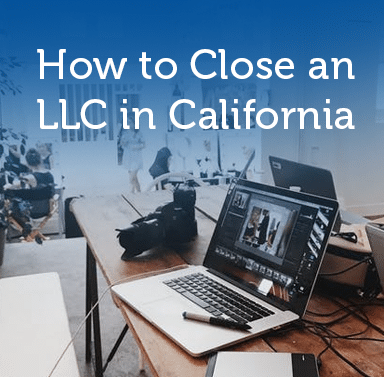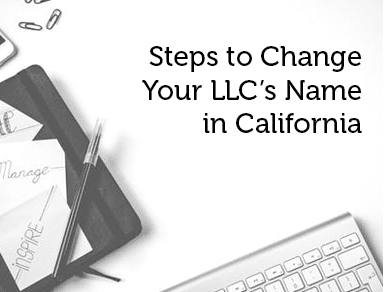More About Limited Liability Companies
One of the frequently asked questions among freelancers is: “Should I form an LLC as a freelancer?” It’s not a requirement but you may be missing out on the advantages if you don’t.
In the dynamic world of freelancing, establishing a firm legal foundation is crucial for long-term success and security. One of the most effective ways to achieve this is by forming a Limited Liability Company (LLC). In this article, we’ll explore the benefits, processes, and considerations for freelancers looking to form an LLC.
Why Should I Form an LLC as a Freelancer? Understanding the Benefits of an LLC for a Freelance Business
Why should you form an LLC as a freelancer? An LLC, a popular business structure among freelancers, offers several advantages:
- Legal Protection: One of the primary benefits of an LLC is the legal separation it creates between personal and business assets. This separation protects personal assets from business liabilities.
- Tax Flexibility: LLCs enjoy pass-through taxation, meaning the business’s income is reported on the owner’s personal tax returns, potentially leading to tax savings.
- Credibility and Professionalism: If you are asking: “Do I need an LLC to freelance?” You may want to consider it to also make an impression. Operating as an LLC can enhance your professional image, attracting more clients and opportunities.
Which is Better: Freelance LLC or Sole Proprietorship?
Many freelancers start out as sole proprietors because it’s the simplest and most common form, offering easy setup and full control over the business. However, it also exposes freelancers to personal liability for business debts and legal issues.
On the other hand, forming an LLC provides freelancers with a middle ground, combining the simplicity of a sole proprietorship with the liability protection of a corporation. Opting for an LLC separates personal assets from business liabilities, shielding freelancers from potential financial risks.
While both structures have their merits, freelancers must carefully weigh factors such as legal implications, tax considerations, and personal preferences to determine whether a sole proprietorship or an LLC aligns better with their business goals and risk tolerance.
Client Story: Alex’s Journey to LLC Freelance Formation
Consider the case of Alex, a freelance graphic designer. After years of working as a sole proprietor, Alex decided to form an LLC. This decision came after a client contract went awry, leaving Alex worried about personal asset vulnerability. By forming an LLC, Alex not only safeguarded personal assets but also experienced a boost in client trust and professional credibility.
Steps to Form an LLC as Freelancers
Forming an LLC involves several key steps:
- Choose a Name for Your LLC: Ensure the name is unique and complies with state regulations.
- File the Articles of Organization: This document outlines the basics of your LLC, including its name, address, and members.
- Create an Operating Agreement: While not always required, an operating agreement is crucial for outlining the LLC’s financial and functional decisions.
- Obtain an EIN: An Employer Identification Number (EIN) is needed for tax purposes.
Learn more about the essentials for forming LLCs in California.
Why Should You Form an LLC as a Freelancer: Tax Considerations for Freelancer LLCs
Will taxation be any different should I form an LLC as a freelancer? There are considerations. Understanding the tax implications of an LLC is vital. In California, for example, LLCs are subject to an annual tax and a fee based on annual gross receipts. Additionally, LLCs can choose their tax classification, such as being taxed as a sole proprietorship, partnership, or corporation.
Discover how an LLC is taxed in California.
Key Takeaways –
- LLCs offer legal protection, tax benefits, and enhanced professionalism for freelancers.
- Forming an LLC involves choosing a name, filing the Articles of Organization, creating an operating agreement, and obtaining an EIN.
- Tax considerations are an essential aspect of managing an LLC.
In the next generation, we will delve deeper into the legal intricacies and further steps involved in forming and maintaining an LLC as a freelancer.
Navigating Legal Requirements and Compliance: LLC as a Freelancer
Once you have established your LLC, it’s crucial to understand and adhere to ongoing legal requirements and compliance standards.
Annual Filings and Record-Keeping
LLCs are required to file annual reports and maintain accurate records of business transactions. This practice ensures legal compliance and aids in financial management and tax preparation.
Operating in Multiple States
Freelancers often work with clients across state lines. If your LLC operates in multiple states, you may need to register as a foreign LLC in those states. This involves additional paperwork and potential fees.
Understanding the requirements for LLCs in California.
Changing or Transferring Ownership
There may come a time when you need to change or transfer ownership of your LLC. This process varies depending on your state’s laws and your LLC’s operating agreement.
Learn how to change or transfer ownership in an LLC.
Client Story Continued: Alex’s Expansion
Once, Alex also had the same question: “Should I form an LLC as a freelancer?” Learning of the advantages convinced him and so he made the switch. After forming the LLC, Alex started receiving more significant projects from other states. Alex registered the LLC in two additional states to accommodate this growth, ensuring compliance and legal protection across state lines.
The Role of Articles of Organization and Operating Agreements
Articles of Organization
The Articles of Organization are a foundational document for your LLC. It includes essential information such as the LLC’s name, address, and the names of its members.
Operating Agreement
While not mandatory in all states, an Operating Agreement is advisable. It outlines the ownership structure, member roles, and operating procedures of the LLC. This document is vital for preventing misunderstandings and disputes among members.
What you need to know about Articles of Organization.
Key Takeaways –
- Compliance with legal requirements and annual filings is crucial for LLCs.
- LLCs operating in multiple states may need to register as foreign LLCs in those states.
- The Articles of Organization and Operating Agreement are key documents for an LLC.
If you are still wondering: “Should I form an LLC as a freelancer?”, we will explore the financial aspects of running an LLC as a freelancer, including taxation and managing business expenses to help you decide.
Financial Management for Freelancer LLCs
Effective financial management is crucial for the longevity and success of your LLC. Here’s what you need to know.
Separating Personal and Business Finances
After forming your LLC, one of the first steps should be to separate your personal and business finances. This includes opening a business bank account and obtaining a business credit card. This separation simplifies accounting, tax filing, and reinforces the legal distinction between you and your business.
Managing Business Expenses and Taxes
Keeping accurate records of business expenses is essential. These records can help reduce your taxable income, as many business expenses are tax-deductible. Additionally, understanding your LLC’s specific tax obligations and benefits, based on its chosen tax classification, is vital.
How LLCs are taxed in California.
Client Story Continued: Alex’s Financial Growth
With the LLC, Alex found it easier to manage finances. Using separate accounts for personal and business finances provided clarity and helped during tax season. By diligently tracking business expenses, Alex maximized tax deductions, leading to significant savings.
The Importance of Legal Consultation for LLCs
While many aspects of forming and managing an LLC can be handled independently, consulting with a legal expert is often beneficial. Legal professionals can provide guidance on compliance, tax implications, and help in drafting or reviewing your LLC’s operating agreement.
Full services for setting up and maintaining your LLC.
Key Takeaways –
- Separating personal and business finances is crucial for LLCs.
- Accurate record-keeping for business expenses is essential for tax purposes.
- Legal consultation can provide valuable guidance for LLC management and compliance.
In the next and final generation, we will discuss the process of closing an LLC if needed and provide a conclusion with a call to action for potential clients.
Closing an LLC: Understanding the Process and Implications
There may come a time when a freelancer needs to close their LLC, either due to changing career paths or other circumstances. Knowing the proper steps to dissolve an LLC legally is essential.
Steps to Close an LLC
- Vote to Dissolve: Typically, the LLC members must agree to dissolve the LLC.
- Settle Debts and Obligations: Ensure all debts and financial obligations are settled.
- File the Necessary Paperwork: Submit the required forms to your state’s business filing agency.
- Notify Creditors and Clients: Inform any creditors and clients about the LLC’s dissolution.
The essentials for how to close an LLC in California.
Client Story Conclusion: Alex’s New Ventures
Eventually, Alex decided to pursue a different career path and chose to close the LLC. By following the correct procedures, Alex ensured a smooth transition without legal complications.
“Should I Form an LLC as a Freelancer?” Understand LLC Management Structure in California for an Effective and Successful Business
New and seasoned freelancers at some point will have to consider their business structure and ask: “Should I form an LLC as a freelancer or keep going without it?”
Forming an LLC as a freelancer offers significant legal and financial advantages, including asset protection, tax benefits, and enhanced credibility. However, it also comes with responsibilities like compliance, financial management, and understanding the implications of operating or closing an LLC.
At Incorporation Attorney, we understand the complexities of forming and managing an LLC. Our team is dedicated to providing you with the expertise and support needed to navigate these processes effectively.
If you’re a freelancer looking to form an LLC or seeking guidance on any aspect of LLC management, contact us for personalized consultation and assistance.













